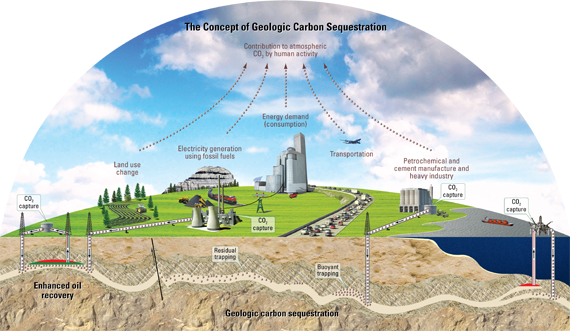It sounds almost too obvious. But we may be able to stave off some of the major effects of catastrophic climate change simply by sucking out of the air the vast amounts of carbon dioxide we’ve been spewing for decades. It’s not a new idea, but it’s one that has never been economical. Until now, perhaps.
Graciela Chichilnisky believes her company has developed a groundbreaking technology not just to capture CO2, but to tap a trillion-dollar market and sell it. Chichilnisky is the CEO and co-founder ofGlobal Thermostat [3], which she describes as “a company that can be profitable and can simultaneously resolve the climate issue and the problem of global poverty.” Fast Company recently named [4] it one of the top 10 most innovative energy companies in the world.
The company hopes to achieve its mission by leveraging new technology with market-based thinking. The idea is pretty straightforward: Remove CO2, one of the biggest contributors to climate change, from the air and then sell it to companies that use CO2 in their products or operations. Take a liability and make it an asset.
Technology to capture CO2 is not new. The most talked about application, carbon capture and storage [5] (CCS) technology, often pairs with fossil-fuel power plants, including those using coal. But it has proved difficult to scale and some critics have questioned whether it is even effective in reducing climate change [6] if it continues to prop up one of the most polluting industries in the world.
This is new: carbon capture and utilization
In the U.S., the coal industry has touted CCS as “clean coal” technology. But several high-profile projects in recent years have highlighted the technology’s huge pricetag, among other problems. A flagship CCS project under construction in Kemper County, Mississippi has been delayed numerous times and the bill has jumped from $2.4 billion to $6.2 billion, making it the most costly coal-burning power plant ever constructed in the country. And earlier this year, the federal government pulled the plug on FutureGen [7], which would have been a carbon capture coal power plant in Illinois. After over a decade of wrangling, the project never made economic sense.

